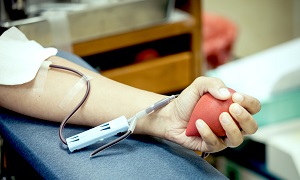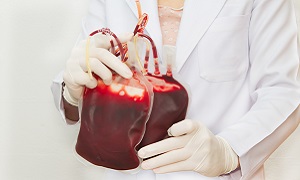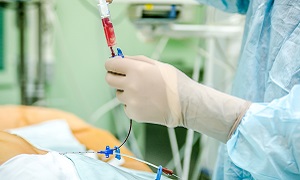Best Autologous Bone Marrow Transplant Doctors in India
Best Autologous Bone Marrow Transplant Hospitals in India
Hospital Highlights:
- Apollo Hospitals is a private healthcare group in India, with its headquarters based in Chennai. Established in 1983 by Dr. Prathap C. Reddy, the group offers a wide range of medical treatments and services across various specialties.
- It is renowned for emphasizing innovation and utilizing cutting-edge medical technologies into patient treatment.
- Known as India’s first corporate hospital, Apollo Hospitals is often credited for pioneering the private healthcare revolution in the country.
- With clinics and hospitals located all throughout India, Apollo Hospitals is a nationwide healthcare organization. Its presence can also be found in foreign countries.
- Preventive health examinations, medical and surgical treatment, and diagnostic centres are just a few of the services that the Apollo group provides.
- The group has several centres of expertise, including Cardiac Sciences, Neurosciences, Orthopedics, Emergency Care, Cancer Care, and Organ Transplantation.
- City: Chennai, India
Hospital Highlights:
- RIMC is a multi-specialty hospital in a sprawling area of 36 acres located in Chromepet, Chennai, Tamil Nadu, India.
- The facility has 450 beds including 130 critical care beds, 9 operating rooms, modern reference laboratories and radiology services, and is conveniently located near road, rail and air transportation.
- RIMC is led and managed by world-renowned physicians committed to healthcare.
- RIMC offers the broadest range of clinical care, education, and research. The hospital offers state-of-the-art technology and modern treatment facilities designed to provide health care at an affordable cost.
- Rela Institute is driven by patient needs, comfort and confidence.
- City: New Delhi, India
Hospital Highlights:
- Fortis Hospital in Shalimar Bagh is a multi-super specialty hospital that strives to provide world-class patient care by leaving no stone unturned.
- Fortis, Shalimar Bagh, with 262 beds and a 7.34-acre footprint, provides the best level of medical care through its team of doctors, nurses, technicians, and management professionals.
- City: Bengaluru, India
Hospital Highlights:
- Established in 2007, the Apollo Hospitals Bangalore is a 300-bed multispecialty hospital situated in Bannerghatta Road, Bangalore.
- Equipped with the state-of-the-art technology, it is a leading hospital dedicated to providing healthcare needs to patients with compassion and expertise.
- It is the first hospital to have completed the highest number of Robot Assisted Heart Surgeries in India.
- Over the years, it has successfully conducted some of the rarest medical procedures such as spinal angiolipoma excision, autologous chondrocyte implantations, and tibial tuberosity shift with MPSL reconstruction.
- The Apollo Hospitals Bangalore has the reputation of performing the greatest series of airway stents in the country.
- Additionally, the hospital is known for providing comprehensive treatment in specialties such as gastroenterology, urology, gynecology, oncology, colorectal surgery, etc.
- The “The Minimal Access Surgery Centre” (MASC), one of Apollo Hospitals, Bangalore’s premier Centres of Excellence, is devoted to the use of minimally invasive surgical procedures.
- In 2013, THE WEEK-A C Nielsen, Best Hospital Survey ranked Apollo Hospitals Bangalore as the 2nd best multi-speciality hospital in Bangalore.
- City: Mumbai, India
Hospital Highlights:
- Gleneagles Global Hospital The 450-bed facility comprises of 17-stories, housing state-of-the-art infrastructure, and advanced medical care facilities.
- The hospital offers end-to-end clinical, surgical, and diagnostic services. It is equipped with a team of eminent medical professionals aided by qualified nurses and medical staff
- The Hospital offers advanced Endoscopic procedures, Hepatobiliary and Liver Surgeries, Surgical and Medical Gastroenterology, Bariatric Surgery, and Robotic surgery.
- The hospital is a center of excellence for Orthopedics, Joint Replacement, Knee Replacement, and Hip Replacement surgery.
- City: Hyderabad, India
Hospital Highlights:
- CARE Hospitals were established in the year 2000, by CARE Group.
- The multispecialty hospital has 435 beds, including 120 critical care beds, with an annual inflow of 180000 outpatients and 16,000 in-patients.
- The hospital provides specialty medical services in Cardiology, Cardiothoracic Surgery, Pediatric Cardiology, Pediatric Cardiothoracic Surgery, Neurology, Neurosurgery, Nephrology, and Urology.
- The hospital has the first dual source, 128 slice CT scanner (for high precision cardiac imaging) – the first of its kind in south India.
- The hospital offers a wide range of accommodation facilities for the convenience of its varied patient base, ranging from general wards to super deluxe rooms.
- City: Mumbai, India
Hospital Highlights:
- Fortis Hospital in Mulund is a 315-bed multi-speciality tertiary care hospital with five JCI accreditations that offers a wide variety of diagnostic and treatment services. The Fortis Hospital in Mulund delivers patient-centred treatment with cutting-edge technology, highly skilled and experienced surgeons, and paramedical staff.
- This institution houses Maharashtra’s largest multi-organ transplant centre. It is also the first heart transplant centre in western India to conduct 100 or more consecutive heart transplants in under four years. It is the only hospital in the city to have multi-organ transplants and has handled the youngest patient for angioplasty. Fortis Hospital Mulund now boasts the first advanced surgical robot in central Mumbai.
- Cardiology and heart surgery, urology, nephrology, neurosciences, orthopaedics, digestive care, emergency and critical care, and maternity care are among the services provided by the hospital.
- City: New Delhi, India
Hospital Highlights:
- Manipal Hospitals, Dwarka, is a super-specialty hospital in Dwarka, New Delhi, which is a part of Manipal Hospitals Group.
- The hospital aims to provide the best treatment on par with international standards at a fraction of the cost.
- Equipped with 380 beds, the hospital is also one of the new age hospitals which are equipped fully with state-of-the-art infrastructure, cutting-edge technology as well as the latest and advanced clinical practices. The hospital also has 13 modular Operation theatres with 118 beds which are solely meant for critical care.
- The hospital comprises internationally acclaimed doctors and highly professional and experienced hospital and medical staff who are able to provide preventive, therapeutic, and diagnostic services all under one roof.
- City: Chennai, India
Hospital Highlights:
- Located in Chennai, India, MGM Healthcare is a top multispecialty hospital that provides all medical services under one roof.
- Since its founding in 2019, MGM Healthcare has quickly become a leading national referral centre, creating several innovative flagship initiatives.
- MGM Healthcare combines next-generation medical and digital technologies to provide better patient results.
- With 12 centres of excellence, more than 400 inpatient beds, 100 intensive care unit beds, and 24/7 emergency care, MGM Healthcare leaves no chance in redefining the patient experience in Chennai.
- MGM Healthcare boasts 250+ expert doctors across 30+ departments, including Cardiology, Pulmonology, Neurology, Obstetrics & Gynaecology, and more.
- They house 12 specialized Centres of Excellence, including Neurosciences, Orthopaedics, and Multi-Organ Transplantation.
- Their team of doctors, nurses, and paramedics works together to give every patient individualized treatment.
Hospital Highlights:
- Lilavati Hospital & Research Centre is India’s premier multi-speciality tertiary care hospital and has been recognised as a global medical excellence centre.
- Lilavati Hospital & Research Centre has built an unrivalled level of trust with its patients over the years, thanks to a solid foundation that comprises cutting-edge facilities, the best medical competence, research, education, and charity endeavours.
- The hospital is quite proud of the fact that it now serves patients from all kinds of backgrounds, not just from the United States but from all around the world.
- The hospital has a total of 323 beds, one of the largest Intensive Care Units (ICUs), 12 Operation Theatres with modern amenities, over 300 consultants, and almost 1,800 personnel.
What is Autologous Bone Marrow Transplant (BMT)?
Autologous Bone Marrow Transplant is a medical procedure where stem cells from the patient’s own blood are extracted to replace the infected stem cells in the patient’s damaged bone marrow.
When is Autologous Bone Marrow Transplant recommended?
Autologous transplant is a type of Bone Marrow Transplant or BMT, where a patient is experiencing damage or infection of the bone marrow. The objective is elimination of the infected or abnormal stem cells in the patient’s blood by replacing them with good stem cells extracted from the patient’s own body. The new stem cells flowing to the marrow improves the rate of blood cell growth. However, the infected or damaged blood cells have to be removed from the system first before introducing the new stem cells.
Autologous Transplant benefits
One of the primary benefits of opting for the Autologous Transplant procedure is that you don’t have to bother about trying to find the best possible match from a third-party donor. The procedure is pretty much self-sufficient. However, the type of procedure you’ll be undergoing can only be determined by the patient’s doctor and medical team based on the diagnostics, intensity of the condition, the patient’s age, weight, coping abilities and more.
The Procedure explained
Stem Cell Extraction Methods:
Primarily there are two common methods doctors use to take stem cells from the patient’s blood. The doctor and the medical team will be the sole decider of which method will suit the patient best.
PBSC Collection
PBSC stands for Peripheral Blood Stem Cell and the process through which it’s done is known as apheresis. A few days prior to the procedure, the patient’s medical team injects stem cell growth boosters to increase the amount of blood-forming cells in the bloodstream. During the procedure blood is extracted from the patient through IV that flows into a machine that filters out the stem cells. The remaining blood is returned to the patient’s body through the second IV. The stem cells are then frozen and kept securely for the transplant day.
The procedure is absolutely painless and the patient will be awake the whole time.
Bone Marrow collection
Autologous Transplant preparation
The preparation includes a procedure called a preparative regimen or conditioning in common term. This procedure is performed a few days before the transplant where the patient undergoes chemo or radiation therapy to kill all the harmful stem cells in the system. The amount of chemo or radiation dose or the number of times the patient needs to undergo this procedure is decided by the doctors based on the patient’s medical reports.
Apart from this as a part of general preparation, you are expected to help the medical team out with a detailed report of your medical history, ongoing medications including vitamins, herbal and supplements, past or present medical reports that the medical team is unaware of etc.
Day Zero
The transplant date is fixed just a few days after the conditioning process, the day being called ‘day zero’. The procedure takes place in the hospital. To introduce the stem cells to your system, a thin tube known as the central line is attached to a vein in the chest of the patient. The process takes a few hours to complete. This is a painless procedure, but patients might feel some after-effects due to the introduction of new stem cells in the system.
Autologous Transplant side-effects
The frozen stem cells introduced in the patient’s system often contains a preservative which may cause some undue side-effects after the procedure is completed. Doctors usually prescribe medications and an ample amount of fluids to flush the medication out of your system. These side-effects may include
- Breathing difficulty
- Headache
- Hives
- Chest pain
- Fever and chills
- Nausea
Common Side-effects
Advanced procedures such as a bone marrow transplant come with its own set of general side effects which include:
- Mouth sores and ulcers
- Diarrhea
- Fatigue
- Nausea and Vomiting
- Bleeding disorders/ frequent bleeding
Recovery & care after Autologous Bone Marrow Transplant
The procedure starts showing its effects in a week or two when the new stem cells travel to the area of damage and gradually starts producing new blood cells to fill in the gap the old damaged cells have left behind. The recovery process varies from patient to patient. Patients are advised to routinely show up for follow-ups to confirm their recovery progress.
Usually, patients undergoing Autologous transplant need constant monitoring and support. Doctors may prescribe blood transfusion or antibiotics to prevent any possible chances of infection. Infection risks are there for the first two-three weeks post the procedure, but slowly and steadily the patient’s body starts getting used to the new stem cells.
General precautions after the procedure include-
- Strict dietary regulations recommended by certified nutritionists or doctors should be followed to ensure a speedy recovery.
- Taking prescribed medications strictly. Ask your doctor before making any modifications in your medicine doses.
- Refrain from heavy lifting or strenuous physical work.
- Take doctor follow-ups seriously to avoid complications like infection.
FAQs
How long do I have to stay in the hospital?
About 3 weeks’ stay in hospital and about 2 months’ stay in India for follow-up and obbservation.
Can Autologous Transplant cure cancer completely?
The main aim of the autologous transplant is to eliminate the damaged or infected blood cells completely or at least prolong their spread in order to increase life span. However, doctors cannot guarantee the procedure will completely cure cancer. In many documented cases, the patient has recovered completely while in other documents, relapse from the patient was noted. However, in cases as this, a second transplant is prescribed.
What happens if my transplant fails?
Even though the chances are rare in autologous transplants, the procedure still has a risk of failing. In that case, based on the patient’s condition, a second transplant procedure is tried.
What is the success rate of Autologous transplants?
The success rates on an average vary from 60-80%. However, the success rate heavily depends on the patient’s immunity, intensity of the condition, and more.














